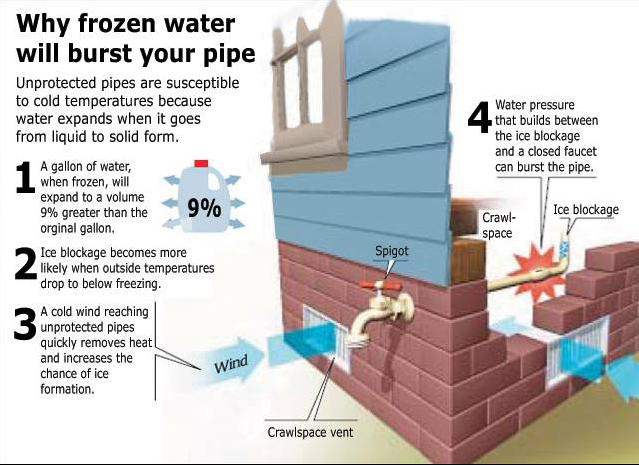Winter Resources
Snow Emergencies
- Snow Emergency Policies & How to Avoid Tickets
- Sign Up for Alerts
- Off-Street Parking Lots (Municipal Lots)
- Snow Emergency Parking Exceptions (Why Some Streets Don't Alternate)
Safety Tips & Info
Services
Snow emergency ends at 8 p.m. Tuesday, Feb. 24. Cars must be moved out of City lots by 10 a.m. 2/25. Full details here. For more information visit: somervillema.gov/snow
Simple steps can help protect homes and businesses. The Water and Sewer Department would like to warn you about the common occurrence of frozen water pipes in extremely cold weather and make sure you keep the name and number of your plumber handy throughout the winter.
Frigid temperatures and gusty winds can cause one of winter’s worst woes: frozen pipes. Property owners, tenants, and residents can take some simple precautions to prevent the inconvenience and expense of frozen water pipes.

Wrap pipes with pipe-insulating materials, which are available at home centers, hardware, and plumbing supply stores, or use insulation. Be sure to protect all pipes in unheated areas, such as crawl spaces and garages.
Today's energy-efficient furnaces do a great job of reducing wasted heat, which lowers heating costs and is better for the environment. However, that also means that they don't tend to warm up the air around them, so it's important to check that basement pipes are properly insulated.
When temperatures drop to near zero, a high wind blowing through a small opening can freeze a nearby pipe. Note: when patching these openings, do not block the air vents that your furnace needs for proper operation.
Look for and seal cold air leaks around electrical wiring, dryer vents, and pipes. Use caulking to keep the cold air out and the heat in. With severe cold, even a tiny opening can let in enough cold air to cause a pipe to freeze.
Pipes that were built within an outside wall can freeze, especially when the wind-chill factor is well below zero and heat is not circulating through these areas.
If you are planning to leave your home or business for an extended period and you don’t drain your pipes, you should lower the thermostat but never shut it off. The lack of heat can freeze the pipes in walls and in the basement. If freezing occurs, the pipes will burst. When the area warms up, the thawing water will cause flooding and possible property damage.
Disconnect the hose; turn off the water from inside your home or business, then drain the pipe. Leave the outside valve open slightly so any water left in the pipe can flow out and not freeze in the line.

Call a plumber to determine if the frozen pipe is within your home or building. If the problem is outside your home or business, the Somerville Water Department may be able to help.
Somerville Water and Sewer Department
water@somervillema.gov
24-hour Customer Service
311
(617-666-3311 outside Somerville)
311requests@somervillema.gov
If you can locate the frozen section of pipe and try to thaw it yourself, be sure to take the following precautions to protect yourself and your property.
The frozen pipe may already be broken and, when the water is thawed, it will leak. In this case, you will need to shut off the water in your home or business until the leaky pipe is fixed.
You risk setting your property on fire. In addition, overheating one area can cause the pipe to burst. Open flames in homes present a serious fire danger, as well as a severe risk of exposure to lethal carbon monoxide.
Open the faucet first. Start by warming the pipe as close to the faucet as possible, working towards the coldest section of the pipe. Water running through the pipe will help to melt the ice in the pipe.
Pour hot water over the cloth. Repeat several times until the pipe is not frozen.
Please submit website feedback using this form. Be sure to include:
Thank you for your feedback!